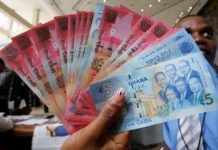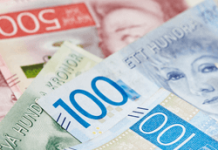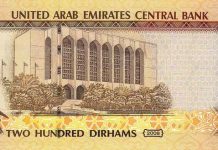When discussing foreign exchange, particularly involving the Finnish currency and Nigeria’s naira, it’s important to distinguish between the official exchange rate and the black market (parallel market) rate. As Finland is part of the Eurozone, its official currency is the Euro (EUR). Therefore, converting “Finland currency” to Nigerian naira refers to converting Euros to Naira.
This article explores the current black market exchange rate for Euros to Naira, the factors that affect the rate, why the black market differs from official sources, and what to consider when exchanging Euros in Nigeria.
What is the Finnish currency?
Finland is a member of the European Union and uses the Euro (€) as its official currency. It replaced the Finnish markka in 2002. The Euro is used across most of Europe and is one of the strongest and most widely traded currencies globally. The currency code for Euro is EUR, and it is subdivided into 100 cents.
Current Black Market Rate: Euro (EUR) to Nigerian Naira (NGN)
As of June 2025, the black market exchange rate for 1 Euro (EUR) to Naira (NGN) ranges between:
-
Buying Rate: ₦1,580 – ₦1,620
-
Selling Rate: ₦1,630 – ₦1,670
These rates vary daily depending on demand, supply, location, and the dealer you are transacting with. Black market dealers can be found in major Nigerian cities such as Lagos, Abuja, Port Harcourt, and Kano.
It is important to note that black market rates are significantly higher than the Central Bank of Nigeria (CBN) official rates, which are often regulated and pegged.
Why Do People Use the Black Market?
Several reasons explain the high volume of foreign exchange transactions done on the black market in Nigeria:
-
Limited Access to Forex at Banks: Due to strict CBN policies and forex scarcity, individuals and businesses often cannot get sufficient foreign currency from banks at the official rate.
-
Speed and Flexibility: Black market dealers are faster and more flexible than banks, requiring less paperwork.
-
Favorable Rates: The black market often offers more competitive exchange rates, albeit at higher prices.
Risks of Using the Black Market
While the black market offers convenience and competitive rates, it comes with serious risks:
-
Fraud and Counterfeit Currency: There’s a high risk of being scammed or receiving fake currency.
-
Legal Risk: Trading in the black market is technically illegal in Nigeria.
-
Unregulated Pricing: Prices are determined arbitrarily and can fluctuate wildly.
Always deal with trusted BDC (Bureau de Change) operators or verified currency exchangers if you must use the black market.
Factors Affecting Euro to Naira Black Market Rates
-
Inflation and Economic Stability: High inflation in Nigeria weakens the naira, increasing demand for stable currencies like the Euro.
-
Forex Reserves: Declining foreign reserves reduce CBN’s ability to stabilize the naira, pushing people to the black market.
-
CBN Policies: Forex restrictions by the CBN often drive people to unofficial markets for currency exchange.
-
Import Demand: The need to import goods and services, often priced in Euros or dollars, increases demand for the currency.
Where to Exchange Euros in Nigeria
-
Black Market Dealers: Found around airports, city centers, and markets (e.g., Abuja’s Wuse Zone 4, Lagos’ Allen Avenue).
-
Bureau de Change (BDC) Operators: Registered BDCs offer better legitimacy than street dealers but still follow black market trends.
-
Online Platforms (Peer-to-Peer): Some fintech apps and P2P platforms provide currency exchange but may reflect black market rates.
While the black market for foreign exchange in Nigeria offers quick access and competitive rates for converting Euros to Naira, it carries high risk and operates outside legal frameworks. For those who need Euros for travel, education, or business, always compare rates and deal with trusted sources to avoid fraud or legal trouble.
Frequently Asked Questions
What is the black market exchange rate for Finland currency (Euro) to Naira?
As of June 2025, 1 Euro exchanges for between ₦1,580 and ₦1,670 in the black market depending on the dealer and location.
Why is the Euro to Naira rate higher in the black market than at the bank?
The black market rate is higher due to limited supply of foreign currency through official channels, greater demand, and reduced access to forex at official CBN rates.
Is it legal to exchange Euros in the black market in Nigeria?
While it is widely practiced, exchanging currencies in the black market is not officially legal in Nigeria. The Central Bank of Nigeria regulates forex transactions, and unauthorized currency trading is considered illegal.
Where is the safest place to exchange Euros for Naira in Nigeria?
The safest option is through a licensed Bureau de Change operator or an authorized financial institution. However, if using the black market, deal only with trusted and recommended dealers to avoid scams.
Also Read: List Of Private Universities That Accept JUPEB



